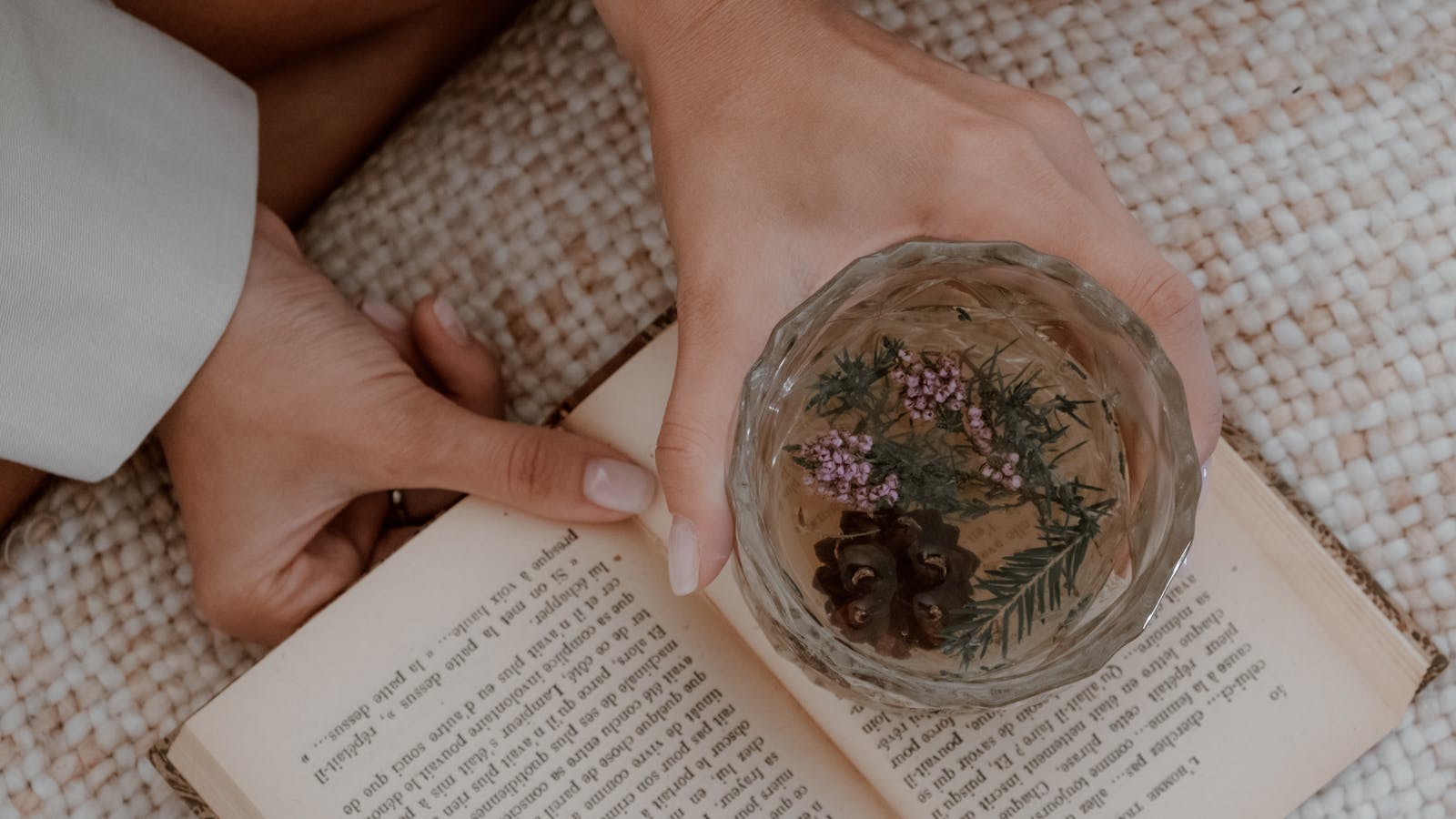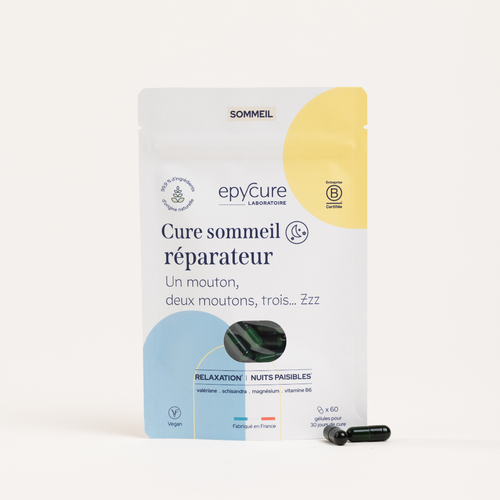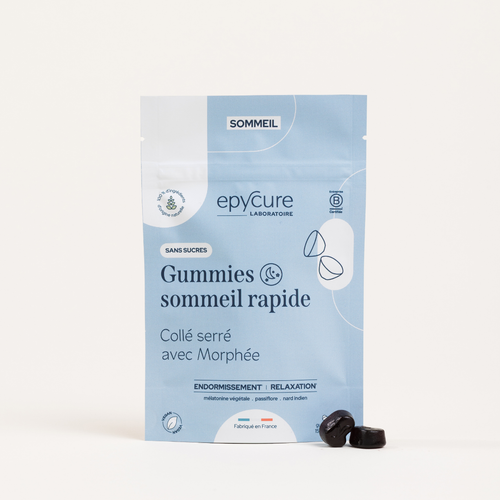Sleep represents an essential function of our body since it allows the body to recover, whether physically or mentally, while being essential for growth, memory, immunity and even metabolism. We unfortunately see that more than half of French people today suffer from sleep disorders due to numerous factors such as age, stress, genes, lifestyle... But then can we really optimize our sleep thanks to to food?
What foods should you choose to get restful sleep?
A well-chosen diet could help us fall asleep quickly and avoid the insomnia that ruins our lives. Indeed, certain foods are capable of influencing the production of melatonin, the sleep hormone that regulates the biological clock and sleep cycles, and reducing the stress that causes sleep disorders. Here are the foods you no longer have to do without.
Dark chocolate, 70% cocoa
If you have trouble falling asleep and experience regular bouts of fatigue during the day, you may be deficient in magnesium. Good for morale, chocolate contains a significant amount of magnesium. It acts on the balance of the nervous system and plays a key role in the wake-sleep periods. It thus helps to get to sleep. Be careful not to overdo it due to the caffeine it contains.
Banana, to relax
Loaded with potassium and magnesium, it allows muscle relaxation. It is also one of the foods rich in tryptophan, an amino acid precursor of the sleep hormone that the body does not know how to produce. This hormone, known as melatonin, is naturally produced by the brain and allows you to fall asleep quickly.
Legumes, nutritional assets
Legumes, namely lentils, beans, peas, etc., contain significant amounts of vitamin B6 . In addition to reducing fatigue, this vitamin has a central action on the nervous and psychological systems since it is involved in the synthesis of numerous neurotransmitters such as serotonin, the good mood hormone, and dopamine, the happiness hormone. It is also essential for the transformation of tryptophan into melatonin, the sleep hormone.
Green leafy vegetables
Spinach, chard, salads, etc. all these plants are also rich in essential nutrients and in particular in group B vitamins. They thus contribute to the good function of the nervous system by helping to reduce anxiety and prepare you for sleep.
Fish and seeds, rich in good fats
Salmon, sardines, herring or even chia seeds, flax and hemp, nuts, etc. they are rich in omega-3, a nutrient strongly associated with better sleep. This is what researchers from the University of Oxford tried to demonstrate, who analyzed the impact of omega-3 on sleep disorders in a group of children. They noted a clear improvement in sleep in several of them: almost an hour of additional sleep per night, less movement and more restful nights.
Whole grains, fuel for the body
Quinoa, bulgur, wheat and wholemeal pasta, etc. These starchy foods provide the body with slow carbohydrates and thus avoid nighttime cravings. Indeed, the lack of sugar at night could lead our body to draw on its reserves instead of sleeping.
What foods should you avoid at all costs before bed?
We all know that to sleep well, you must avoid heavy meals and eat just before lying down. But you also need to be careful about the foods you choose because some of them, eaten at dinner, can harm the quality of your sleep.
- Fatty foods : fried products, fatty meats, pastries, etc., are foods that often lead to difficult digestion and abdominal pain. Consumed in the evening, they can interfere with quality nighttime rest and fragment sleep.
- Spicy dishes : chili, curry, tabasco, etc., all these spices are not recommended before bedtime, especially when you are not used to eating spicy foods. In fact, they will increase the body temperature and create nighttime restlessness which can considerably disrupt sleep.
- Cruciferous vegetables : despite the nutritional qualities and proven health benefits of these vegetables - cauliflower, Brussels sprouts, turnips, broccoli, etc. - they are strongly not recommended before bedtime. Indeed, they often cause bloating and gas and can therefore harm the quality of sleep.
- Stimulants : it's no secret that stimulants like tea, coffee, cola-based drinks, sodas or even vitamin C have a negative impact on sleep. In addition to delaying falling asleep, they increase the number of nighttime awakenings. So we avoid all these stimulants after 4 p.m.
- Alcohol : even if it helps you fall asleep quickly thanks to its sedative action, it prevents you from having restful sleep by promoting multiple nocturnal awakenings.
A natural, hormone-free boost to sleep better
Plants such as passionflower, valerian, lemon balm, lavender, etc., can also be beneficial for sleep. Taken in cures of food supplements or in herbal teas, they are studied and scientifically proven to act effectively on falling asleep and to help regain more restorative sleep.
You can find them in our natural food supplement cures. To choose in 100% natural gummies format with apple pectin or in capsule format for immediate and in-depth action on the body, our sleep formulas are without hormones or addiction . Enriched with adaptogenic plants, vitamins & minerals, they provide proven effectiveness on relaxation and sleep.
- Sleep Gummies are 60 small passion fruit flavored chewing gums made from passionflower , saffron and griffonia . They promote faster falling asleep and help reduce insomnia and nocturnal awakenings linked to nervous agitation.
- The Peaceful & Serene Sleep treatment based on poppy extracts, vitamins & minerals comes in the form of vegan capsules with chlorophyll. It will reduce the mental load for peaceful and peaceful sleep and induce quality nighttime rest for healthier, lasting sleep.





